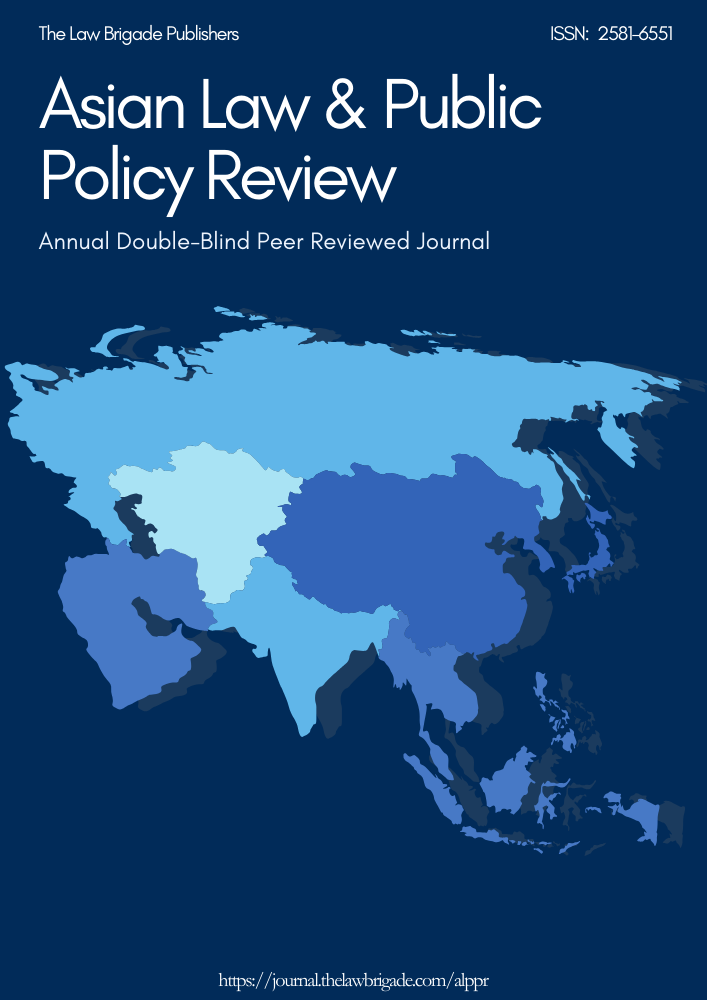The Ethics of Legal Process Outsourcing in India: Globalization and Commodification
Keywords:
Economy, Outsourcing, Legal Services, Ethical IssuesAbstract
The responsibility of lawyers grows as their practices grow with time. The responsibility from becoming a part time assistant to a full-time employee along with the power of supervising, regulating increases their liability. The economy of a country changes with time and in this era of economic condition the demand for cost effective and time effective method of completion of legal process is in demand by the public and the process of Legal Process Outsourcing (LPO) has turned out to be the perfect mechanism to achieve it and attract the clients. The process of outsourcing has no longer remained a novelty but has become a reality in this 21st century for a developing nation like India. With the emergence of time, India has become one of the most favorable destinations amongst legal outsourcers due to its convenient time zones and a majority of English-speaking population. However, amidst the evolving nature of the outsourcing industry in India, serious ethical, legal and professional issues are concerned with it. Ethical implications like client confidentiality, conflict of interest, unauthorized practice of law, disclosure to clients and billing practices have always hinders the growth of the process in India.
Thus, this paper attempts to point out the possible ethical concerns that may arise out of the outsourcing process and proceeds to assess the existing regulations that deals with the ethical issues of outsourcing by examining the rules and guidelines that govern outsourcing in India and United States. Moreover, the paper tends to assess the lacunae in the regulatory framework that controls the outsourcing process in India and tries to seek some recommendations to improve the condition of the same and the future prospects of the LPO firms so as to be at par with other developed nations like United States.
Downloads
Downloads
Published
Issue
Section
License

This work is licensed under a Creative Commons Attribution-NonCommercial-ShareAlike 4.0 International License.
License Terms
Ownership and Licensing:
Authors of research papers submitted to any journal published by The Law Brigade Publishers retain the copyright of their work while granting the journal specific rights. Authors maintain ownership of the copyright and grant the journal the right of first publication. Simultaneously, authors agree to license their research papers under the Creative Commons Attribution-ShareAlike 4.0 International (CC BY-SA 4.0) License.
License Permissions:
Under the CC BY-SA 4.0 License, others are permitted to share and adapt the work, even for commercial purposes, provided that appropriate attribution is given to the authors, and acknowledgment is made of the initial publication by The Law Brigade Publishers. This license encourages the broad dissemination and reuse of research papers while ensuring that the original work is properly credited.
Additional Distribution Arrangements:
Authors are free to enter into separate, non-exclusive contractual arrangements for distributing the published version of the work (e.g., posting it to institutional repositories or publishing it in books), provided that the original publication by The Law Brigade Publishers is acknowledged.
Online Posting:
Authors are encouraged to share their work online (e.g., in institutional repositories or on personal websites) both prior to submission and after publication. This practice can facilitate productive exchanges and increase the visibility and citation of the work.
Responsibility and Liability:
Authors are responsible for ensuring that their submitted research papers do not infringe on the copyright, privacy, or other rights of third parties. The Law Brigade Publishers disclaims any liability for any copyright infringement or violation of third-party rights within the submitted research papers.


